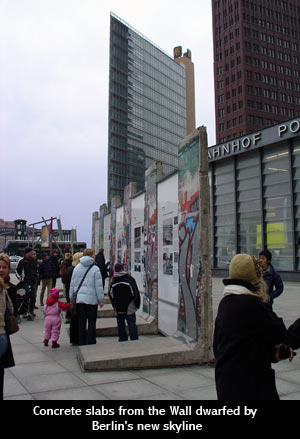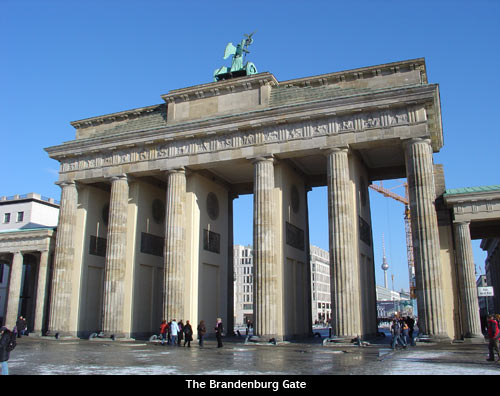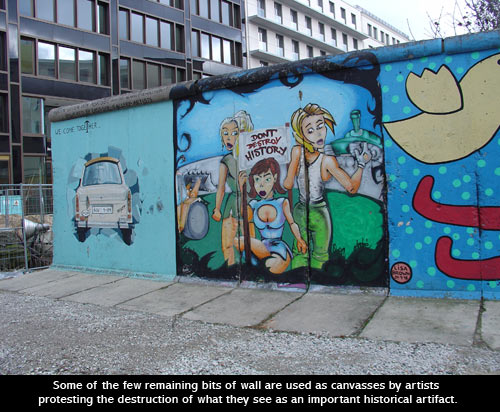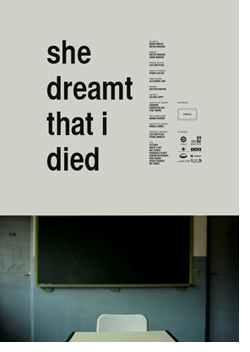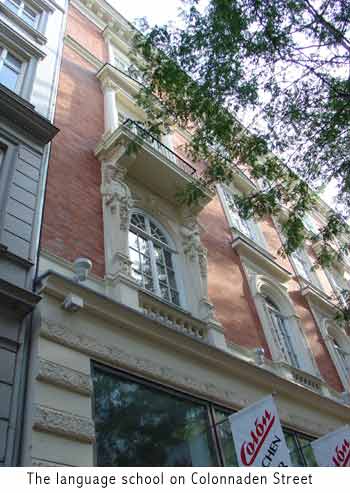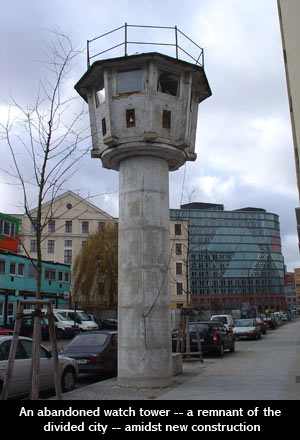 For five months, the student apartment in Hamburg has been our home. I begin to think that I will actually miss the click-click of the high-heeled woman in the apartment above us, and the clink-clink of the liquor bottles collected by the cleaning staff every Monday as they remove the evidence of the weekend’s revelry from the common room down the hall.
For five months, the student apartment in Hamburg has been our home. I begin to think that I will actually miss the click-click of the high-heeled woman in the apartment above us, and the clink-clink of the liquor bottles collected by the cleaning staff every Monday as they remove the evidence of the weekend’s revelry from the common room down the hall.
We have experienced so much here, though the time seems to have passed very quickly. We celebrated a real German Christmas, witnessed a New Year’s celebration fuelled by alcohol and lit up with a profusion of personal fireworks, and felt the damp cold of a Northern European winter. Too soon, it is time to leave for Berlin.
But packing our belongings is not an easy undertaking. How did we acquire so much stuff in the span of a few months? We cannot possibly move all of our belongings to Berlin. In order to deal with our abundance, I have to buy another piece of luggage and mail several packages of books, documents, and posters to our house back in Edmonton. By the time we have finished cleaning out our apartment, we pack seven bags of groceries, which we give to our Egyptian neighbours. Only then are we ready to leave for Hamburg’s main train station.
At the station, large sections near the shops are closed off, and there is an unusual number of police officers present, perhaps even more plentiful than one usually sees at the terminal during soccer games. Apparently, someone has left a suitcase unattended, so the object must be treated as if it could be a bomb. Though I had wondered if this might have been a portent of things to come, we nevertheless arrive safely in the German capital.
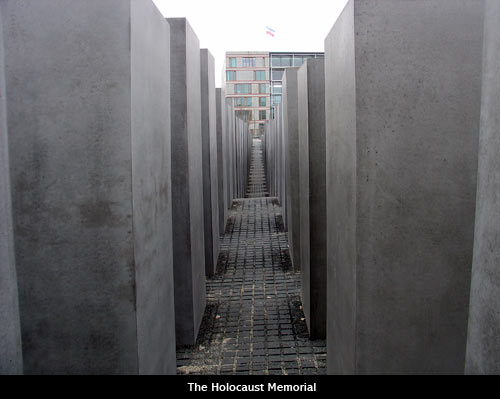
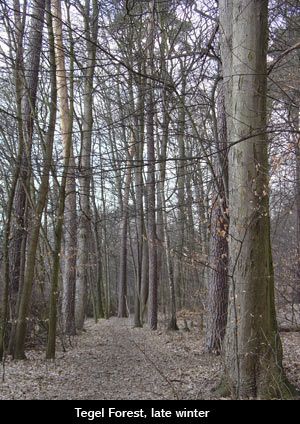 In Berlin, our accommodations are the upper flat of a house on the outskirts of the city, in a quiet neighbourhood surrounded by the Tegel forest. We are told that a family of wild boars resides nearby, and we soon learn that this semi-rural setting is home to livestock as well.
In Berlin, our accommodations are the upper flat of a house on the outskirts of the city, in a quiet neighbourhood surrounded by the Tegel forest. We are told that a family of wild boars resides nearby, and we soon learn that this semi-rural setting is home to livestock as well.
The woman who lives in the duplex adjacent to us owns an assortment of chickens and ducks, the latter of which come over the hedge dividing the properties, so that they can perch over our back door. The fowl oversee our departures and arrivals.
At least the ducks and chickens are relatively quiet, but the rooster starts to crow when the early morning train passes through the neighbourhood. The first train is his signal that a new day has started, and he is apparently unconcerned that here is no hint of sunshine at 4:30 a.m.
The forest, only a short walk from our door, is deep and mysterious, but I am drawn to Berlin’s centre. There the crushing weight of history is in evidence everywhere. Prussian palaces, museums from the colonial age, the Brandenburg Gate, the Holocaust memorial, shrines commemorating the Soviet military victory over fascism, and reminders of the cold war can be found near the centre of the once-divided city.
The city has fascinated me ever since I first set foot there 19 years ago. At that time, a concrete wall surrounded West Berlin, and dogs and East German border guards, ordered to shoot anyone attempting to cross into West Berlin from the German Democratic Republic, patrolled the wall’s outer perimeter.
Today that same wall (the world’s most famous symbol of ideological conflict) has been largely erased in favour of office towers and shopping centres. Even the new Canadian Embassy, I am told, is built in the former no-man’s land of the Berlin Wall.
Yet here and there, amid the construction, one discovers remains of the infamous wall. These lonely concrete slabs are often painted with pictures and slogans denouncing the destruction of Berlin’s history.
There is so much to see and do here, I wish that Angeles and I could stay here for more than the single month that we have time for. But there are other things to consider…
(Search for “Life In Germany” on the Voice website for more of John’s story:)
